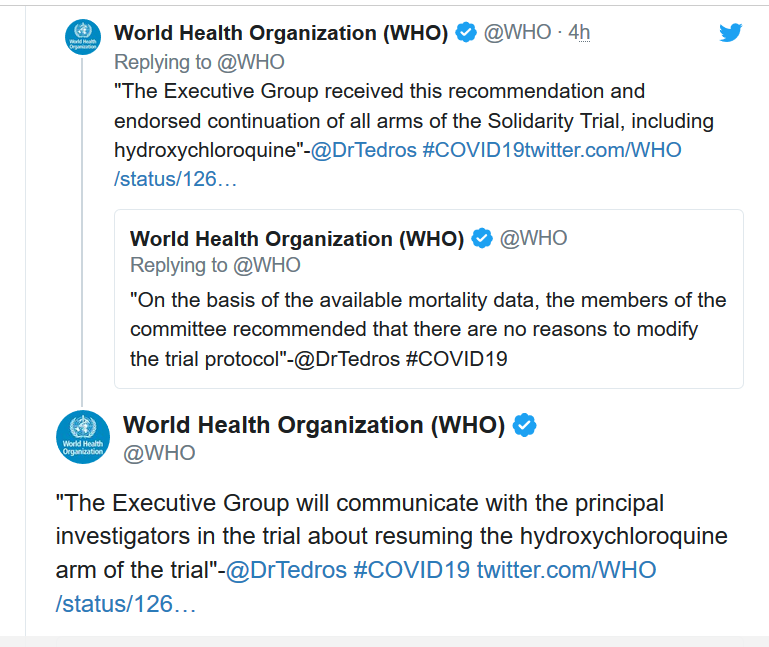Dr Zelenko expects to be in publication along with some German colleagues, in about two weeks. In the following video (pardon quality issues):
. . . he asks, in effect, isn’t it standard to treat a disease as early as possible, so why the strange difference here? He makes a comparison to how a fire can flash over into a much more dangerous stage and notes how much easier it is to hit it while it is small. He expresses a measure of anger with medical and political establishments, /do allow for that.
He identifies that by the time people are at a Doctor’s office they are likely to be about day 5 in the disease process, on the verge of an explosion in viral load with attendant damage to the body.
He estimates turnaround time at about 3 days on tests, thus if you wait you likely have had serious damage due to explosion in viral load with attendant cell destruction to produce those viruses; linked doubtless, is immune response which can spin out of control in a potentially fatal cytokine storm.
He points to manageable toxicity and safety then suggests, go on the drug cocktail, then pull back if there is no need.
An implication of his discussion is what we may call the U-model of such a disease as this. As came up in a current UD thread:
The idea is that a fast-mover disease like this triggers a U-shaped trend (with a potentially catastrophic descending arm), where the crisis is the bend. Those who fail to make it, unfortunately die . . . a reverse J as the rising arm has been frustrated. Recovery then takes an onward period so recovery statistics lag death statistics, part of the epidemiologist’s headaches. Of course, relapses can move us to a W . . . double U . . . etc. So, we have a simple descriptive model of the trend of such an illness. [This is similar to the plucking model of recession in economics.] The stitch in time factor is, to hit the process early in the descending arm, so the U is shallow; you will probably recall the question of building up one’s “resistance” to colds, Flu and the like. In the context of Ivermectin, its preliminary indication is that it can help to pluck back up from further down the descending arm. And of course hospitalisation is an index of being fairly far down the arm, ICU being a yet worse sign. Intubation and Ventilation are grim signs.
While we wait on his announced publication, we may wish to discuss. END
PS: An interesting second vid comes from India, courtesy Tech for Luddites:
PPS: Here is the screen clip, June 3rd:
